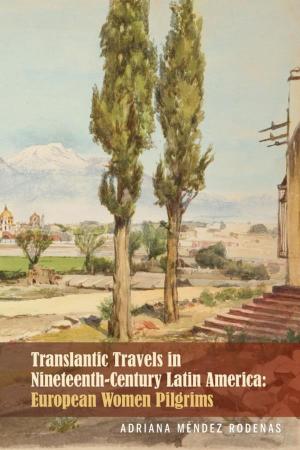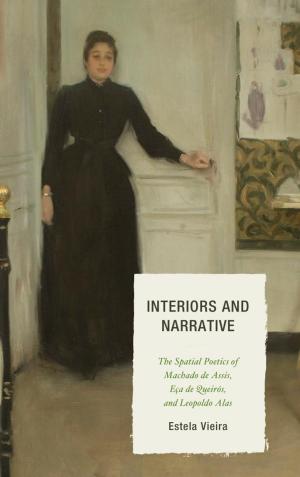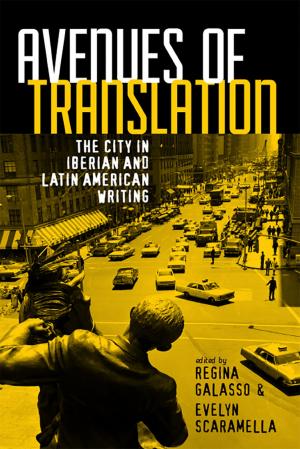The Fruits of the Struggle in Diplomacy and War
Moroccan Ambassador al-Ghazzal and His Diplomatic Retinue in Eighteenth-Century Andalusia
Fiction & Literature, Literary Theory & Criticism, European| Author: | Aḥmad ibn al-Mahdī al-Ghazzāl | ISBN: | 9781611488074 |
| Publisher: | Bucknell University Press | Publication: | November 23, 2016 |
| Imprint: | Bucknell University Press | Language: | English |
| Author: | Aḥmad ibn al-Mahdī al-Ghazzāl |
| ISBN: | 9781611488074 |
| Publisher: | Bucknell University Press |
| Publication: | November 23, 2016 |
| Imprint: | Bucknell University Press |
| Language: | English |
In 1766, the Moroccan ambassador Aḥmad ibn al-Mahdī al-Ghazzāl embarked on an unprecedented visit to Spain during a time of eased tensions between the two countries. The sultan Sidi Muḥammad ibn ‘Abdallah wanted the return of Muslim prisoners and sacred Islamic texts, while the Spanish king hoped to improve trade and security across the Strait of Gibraltar. With royal welcome and escort, al-Ghazzāl traveled for several months in order to meet with Carlos III at his summer palace north of Madrid. There they negotiated a historic treaty, and then the Moroccan ambassador made his way back to Marrakesh, where the treaty was ratified in the presence of the Spanish ambassador Jorge Juan and hundreds of freed Muslim captives. In total, the trip lasted a year and covered more than fifty Spanish cities and towns. Most remarkable, however, is the fact that al-Ghazzāl’s travelogue, in which he recorded the experience in great detail and moving prose, has been lost to history. This first full translation with critical introduction recovers his voice. It offers insight into the dawn of modern diplomacy and its overlap with literature; it looks at eighteenth-century Europe through Arab eyes; and, it explores the deep nostalgia that the Islamic past of Andalusia provoked for a Moroccan traveler who traced his family ties to exiles of the region. Finally, al-Ghazzāl’s visit has further significance as the neglected backdrop to one of Spain’s most canonical eighteenth-century works, the Moroccan Letters of José Cadalso. Thus, the world literature approach of the present introduction also reimagines the pluralism of Cadalso’s “foreign gaze” through the encounters of the actual ambassador in his own words.
In 1766, the Moroccan ambassador Aḥmad ibn al-Mahdī al-Ghazzāl embarked on an unprecedented visit to Spain during a time of eased tensions between the two countries. The sultan Sidi Muḥammad ibn ‘Abdallah wanted the return of Muslim prisoners and sacred Islamic texts, while the Spanish king hoped to improve trade and security across the Strait of Gibraltar. With royal welcome and escort, al-Ghazzāl traveled for several months in order to meet with Carlos III at his summer palace north of Madrid. There they negotiated a historic treaty, and then the Moroccan ambassador made his way back to Marrakesh, where the treaty was ratified in the presence of the Spanish ambassador Jorge Juan and hundreds of freed Muslim captives. In total, the trip lasted a year and covered more than fifty Spanish cities and towns. Most remarkable, however, is the fact that al-Ghazzāl’s travelogue, in which he recorded the experience in great detail and moving prose, has been lost to history. This first full translation with critical introduction recovers his voice. It offers insight into the dawn of modern diplomacy and its overlap with literature; it looks at eighteenth-century Europe through Arab eyes; and, it explores the deep nostalgia that the Islamic past of Andalusia provoked for a Moroccan traveler who traced his family ties to exiles of the region. Finally, al-Ghazzāl’s visit has further significance as the neglected backdrop to one of Spain’s most canonical eighteenth-century works, the Moroccan Letters of José Cadalso. Thus, the world literature approach of the present introduction also reimagines the pluralism of Cadalso’s “foreign gaze” through the encounters of the actual ambassador in his own words.















